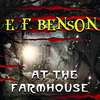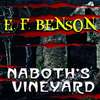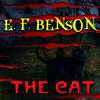Kitabı oku: «David Blaize», sayfa 4
Ferrers shrugged his shoulders.
“All right, then,” he said, feeling slightly hurt. “And you’ve got your three cuts from Bags, too, haven’t you? I bet Bags lays on.”
A minute afterwards he was in the awful presence. Even as he entered he heard the jingle of keys, and when he advanced to the table, where its occupant was looking vexed, he saw that the fatal middle drawer was already open. That it could have been opened for any other reason did not strike him; he supposed that his case was already judged.
For the moment the Head seemed unaware of his presence, and continued to read the letter that apparently annoyed him.
“Pish!” he said at length, in a dreadful voice, and, looking up, as he tore it in fragments, saw David.
“Ah, Blaize,” he said, “I sent for you – yes, I want you to answer me a question or two.”
This looked as unpromising as possible. The drawer was already open, but it seemed that a “jaw” was coming first. Why couldn’t he cane him and have done with it, thought the dejected David.
The Head rapped the table sharply.
“Question one,” he said. “Is it the case that my daughters have incurred the wrath of the first form?”
David’s head reeled at the thickness of the troubles.
“Yes, sir,” he said.
“Good. Question two, which you need not answer if any sense of honour forbid you. Why have they deserved this – er disgrace? And why do you join in inflicting it?”
David drew a long breath; there was no sense of honour that would be violated in telling the Head, but to do so was like taking a high header into unknown waters, when it required all the courage you were possessed of to go off a low board into four feet of familiar swimming-bath.
“Please, sir, it’s quite obvious that Car – ”
He had begun with a rush, and the rush had carried him too far.
“Carrots,” said the Head suggestively.
(Lord! how did he know? thought David.)
“Please, sir, we felt sure that Miss Edith had got Ferrers into a row, because she saw him in Richmond week before last,” said David.
“And – and sneaked to me?” suggested the Head.
“Yes, sir, told you.”
“I dare say Miss Edith saw him,” said the Head, “but I haven’t the slightest idea whether she actually did or not. I saw him myself. Miss Edith had nothing to do with it. Kindly tell your friends so.”
“I’ll tell them,” said David. “They’ll be awfully glad, sir.”
“Why?” asked the Head.
Again David dived off the high header-board into dark waters.
“Because nobody wanted to think she was a sneak, sir,” he said. “We always thought she was a good chap – young lady, I mean, sir.”
The Head nodded, and for the next half-minute busied himself with the reports that had come in this morning.
“I think there was something else I wanted to see you about,” he said. “Yes: here it is. You are reported for being in Crabtree’s cubicle before dressing-bell this morning. Any explanation?”
“No, sir,” said David.
“You knew it was against the rules?”
“Yes, sir.”
The Head drew a large and dreaded book towards him, which contained a list of all the boys’ names, and against each the number of times they had been reported for any misconduct during the current term. Next the name of Blaize was that of Bellingham, and, glancing at it hastily, he credited David with Bellingham’s stainless record.
“I see you have not been reported before this term,” he said.
The moment he had spoken he saw his mistake; on the line below was David’s record, showing that lie had been reported twice. But he waited for David’s answer. He had not considered what he should do if David accepted the statement, but he believed, and wanted to prove to himself, that David would not.
A joyful possibility whirled through David’s mind; it was conceivable that previous reports against him had not been entered. And then, not really knowing why, he spoke.
“No, sir, I have been reported before,” he said.
“For the same offence?”
“Yes, sir.”
“Once before?” asked the Head, feeling that his test stood firm.
“No, sir, twice,” said David, squeezing his hands together.
The Head closed the book. He put it in the middle drawer and closed that also.
“Thank you for telling me the truth,” he said. “And now I want you, as a personal favour, to make an effort to keep school-rules. They are made for that purpose. Good-bye, my boy. Ah, you are late for breakfast, so come and have breakfast with me. If you are late for school afterwards, explain to Mr. Dutton.”
David was joyfully late for school, and not only explained briefly then, but categorically afterwards to his form in the interval at half-past ten.
“Sausages,” he said, “and poached eggs and bacon, and sloshy buttered toast and strawberries. Gosh, the Head does himself well. He has breakfast like that every day, I expect. Didn’t I tuck in? Oh, and another thing: Carrots didn’t sneak at all, it was the Head himself who saw Ferrers in Richmond. He told me so.”
“Don’t believe it,” said Ferrers, who had misogynistic tendencies.
“Well then, you’ve got to. The Head never lies, and so Carrots is all right. And the Head’s my pal.”
“Can’t think why he didn’t whack you, though,” said Ferrers. “Perhaps he knew you were going to catch it from Bags. He’s been binding his racquet-handle, too, to get a firm grip.”
This was slightly malicious on Ferrers’s part, but what with special tea last night, and special breakfast this morning, and the recovery of the Monarch, and the remission of a caning, he thought David a little above himself. But even this information about Bags did not appear to depress him, and he cocked his yellow head on one side, like a meditative canary, and half-shut his eyes, as if focussing something.
“Blow it, if I hadn’t forgotten all about Bags,” he said. “Ferrers, there’s something rummy about Bags’s show. Why did Bags not want to take up my challenge, if he knew the Monarch wasn’t in his cubicle? And why didn’t he take a dozen cuts at me? It’s all rot of him to say that he didn’t care about whacking me. Any decent chap’s mouth would water to lick a fellow who had accused him of stealing.”
The two boys had wandered away in this half-hour’s interval between schools to a distant corner of the field below the chestnut-tree. There David lay down flat, and Ferrers flicked the fallen flowers at his face. But he stopped at this.
“You see, I caught him a juicy hack, too, last night,” continued David. “And he’s a revengeful beast in a general way.”
“Perhaps it’s the Day of Atonement or something,” suggested Ferrers.
David sat up.
“No, that can’t be it,” he said. “Else he’d want to make me atone. Hallo, here he comes across the field, racquet-handle and all.”
He suddenly gave a shrill whistle through his broken front tooth.
“I say, will you back me up whatever I say?” he asked. “I’ve thought of something ripping.”
Ferrers peered short-sightedly across the field. He did not often wear his spectacles, since they were supposed to give him a resemblance to Goggles, which was the rise of intolerable comment. So they seldom graced his freckled nose.
“Yes, here he comes,” he said. “I’ll back you up. But, what is it?”
“Oh, you’ll see,” said David.
Bags made a truculent approach, swinging his racquet-handle. He had done all that could humanly be done in the easing of his conscience, and since he had been literally unable to get out of the rôle of executioner with honour, he had wisely determined to dwell on the bright side of it, and hit as hard as he could in the same place.
“I’ll lick you now if you like,” he said brightly.
David turned a cold face on him.
“Thanks, awfully,” he said, “but we settled it for twelve. You see, a good deal may happen before twelve. Ferrers and I were just talking it over. Wasn’t it a pity that Ferrers Minor slept so badly last night?”
This remark seemed slightly to disconcert Bags, but he carried it off with fair success.
“The point?” asked Bags politely, slapping his leg gently with the racquet-handle.
“Oh, thought you might see it,” said David. “The point is that he didn’t go to sleep before – when was it, Ferrers?”
“He heard the clock strike one,” said Ferrers, at a venture.
A shade of relief crossed Bags’s face, which the Machiavellian David noticed.
“I still don’t see the point,” said Bags.
David pursued his ripping plan.
“No, you’ve mixed it up, you goat,” he said to Ferrers. “Your minor told me he awoke and heard the clock strike one, and lay awake till dressing-bell. Bang, wide awake, like – like toothache.”
“Sorry, of course it was,” said Ferrers, backing his fellow-conspirator up.
Bags shrugged his shoulders, and began to walk away.
“Afraid I can’t see the point,” he said. “So I’ll whack you at twelve, Blazes.”
David lay down again with complete unconcern.
“Right oh,” he said. “But, of course, if you’ve got anything to say about it all, you might be wise to say it yourself, and not let – well, somebody else say it for you. Ferrers Minor hasn’t told anybody yet, except his major and me. Not yet, you know,” he added.
Bags appeared to take no notice of this, unless he strolled away rather more deliberately than before. Then David turned quickly to Ferrers and whispered in his ear.
“Go and find your minor,” he said, “and don’t let Bags talk to him. I’m going to stop here. I shouldn’t wonder if Bags came back.”
“But what on earth is it all about?” asked Ferrers.
David’s eyes sparkled with devilish intrigue.
“Can’t explain now,” he said. “Just go and stick on to your minor, and don’t let Bags question him. There’s something up.”
Ferrers obeyed the bidding of the master-mind, and by a rapid flank march got in front of Bags, who called to him. But he took no notice, and presently David saw him lead off his minor like a policeman. At that his habitually seraphic face grew a shade more angelic, and any one who did not know him must have been surprised that wings did not sprout from his low slim shoulders. The Machiavellian device which he had practised had come to him like an inspiration: if Bags’s conscience was clear, he would not mind a scrap for the wakefulness of young Ferrers, and David was morally (or immorally) sure that Bags’s conscience was not immaculate. He had had something to do with the disappearance of the stag-beetles, though exactly what David had no idea. Then he gave a little cackle of delight, for he saw that Bags had stopped in his indolent stroll with the racquet-handle; then that he turned and was coming back towards him. David lay down at full length and whistled in an absent manner. Without looking, he became aware that Bags was standing close to him.
“I say, Blazes, I want to tell you something,” said that conscious-stricken one at length.
David sat up with an air of great surprise.
“Hallo: that you?” he said. “Tell away then, if it won’t take too long.”
“Well, it’s private. You must swear not to tell any one.”
David shook his head.
“Oh, I couldn’t do that,” he said.
“Why not?”
David turned on him an indulgent glance.
“Oh, I expect you know,” he said. “It’s partly because I know already what you’re going to tell me, and partly because you’re a swindling, stealing liar, and the sooner other chaps know that the better.”
Bags made a swinging blow in the air with his racquet-handle.
“Well then, I don’t care,” he said. “I’ll give you three of the jolliest cuts you ever had at twelve.”
“Will you? After Ferrers Minor has told his story?” asked David.
“Well, I tried to get out of it,” said the unhappy Bags.
“There was an awful bright moon last night, Crabtree,” said David thoughtfully. “But about what you want to tell me. It might make a difference if you told me voluntarily.”
Bags capitulated.
“Well, then, I took your beastly stag-beetles, and put them back on your bed when you had gone to your bath.”
“Oh, that was the way it was?” said David. “Pretty cute. But then, you see, I was cuter. Ferrers Minor didn’t lie awake a minute, as far as I know. But I saw you had a bad conscience. Can’t think why you didn’t accept my challenge straight off. Why didn’t you?”
He looked at the dejected Bags, and his funny boyish little soul suddenly grew perceptive.
“What’s the row, Bags?” he asked.
Bags sat down on the grass by him.
“I feel perfectly beastly,” he said. “You’re always horrid to me, and – and I like you so awfully. You kicked me fit to kill last night, just because I threw an ink-dart at you. I only did it for a lark, just because I felt fit. And after I had taken your stags I was sorry, and I tried to get out of your challenge, though I knew you would lose it.”
David ceased to sit in the seat of the scornful. Whatever Bags had done (and he really had done a good deal) he had blurted out that “he liked him so awfully.” It was no time to inquire whether he had seen Glanders and not warned him, or to examine further into “the bally show.” What Bags had said in all sincerity took rank over anything Bags might have done. And with that he wiped the whole affair clean off his mind, and held out a rather grubby hand.
“I bet we get on rippingly after this,” he said hopefully.
CHAPTER IV
David was swaggering about – neither more nor less – in the new school blazer and eleven-cap on the morning of the cricket-match against Eagles School, which was the great event of the entire year. But, as a matter of fact, this swagger was but a hollow show, and though he was completely conscious of being an object of envy and admiration in the eyes of the small boys, or, indeed, of anybody who was not in the eleven, he did not envy himself in the smallest degree. To begin with, he had that which in later life is called an attack of nerves (though at present it came under the general comprehensive head of “feeling beastly”) which made his mouth dry and his hands damp and his inside empty but not hungry. And, to make this worse, his father had announced his intention of coming down to see the match. That might not sound tragical, but to David it was the cause of awful apprehensions, which require a true sympathy with the sensibilities attaching to the age of thirteen fully to appreciate.
To begin with, his father was an Archdeacon, and since he wore a shovel-hat and odd, black, wrinkled gaiters even when, as during last summer holidays, he climbed the hills in the Lake District with a small edition of the poems of Wordsworth in his pocket, from which he read aloud at frequent halting-places, David had not allowed himself to hope that on the present inauspicious occasion he would be dressed like any other person, and so escape the biting criticisms that his curious garments would be sure to call forth. But there was much worse than this, for his father was going to stay with the Head over Sunday, and was to preach in school chapel in the evening. That had occurred once before, and the thought of the repetition of it made David feel cold all over, for his father, among many other infelicitous remarks in the course of an infliction which had lasted over half an hour, as timed by the indignant holders of surreptitious watches, had alluded to the chapel and the services there as the central happiness of school-life. David had barely yet lived down that fatal phrase; everything connected with chapel had been rechristened: the chapel bell had been called “the central happiness bell”; it was time for “central happiness”; one was late for “central happiness.” The school had been addressed as “lads in the springtime of hope and promise”; it was the most deplorable affair. And he might easily, in this coming trial, give birth to more of these degrading expressions, which David felt to be a personal disgrace.
But it was not even his father’s dress nor his possible behaviour in the pulpit that David dreaded most: it was the fear that he would again, as he had expressed it before, “take part in their school-life.” On that lamentable occasion he had had dinner with the boys, not sitting at the masters’ table, which would have been bad enough, but side by side with David at the table of the sixth form. As ill-luck had it, there was provided for dinner that day beefsteak pudding, otherwise known as “resurrection-bolly,” since it was firmly (though mistakenly) believed that it was composed of all the scraps left on the plates during the last week. This tradition was beyond all question of argument and conjecture; it was founded on solid proof, since Ferrers had distinctly recognised one day, in his portion of resurrection-bolly, a piece of meat which he himself had intentionally left on his plate four days previously. Consequently, however hungry you might be, it was a point of etiquette never to eat a mouthful of resurrection-bolly; and David’s misguided parent had not only eaten all his, but, like Oliver Twist, had asked for more, and unlike him had obtained it, and eaten that as well with praise and unction. Of course he could not be expected to know that he had been eating scavenged remains (so much justice was done him), but he had remarked on the excellence of it, whereas it was popularly supposed to “stink.” Clearly, then, that was the sort of food which Blaize was regaled on at home in the holidays, and witheringly sarcastic pictures were drawn of Blaize’s pater in gaiters collecting scraps from the dustbin in his shovel-hat, and gleefully taking them to the kitchen.
These miserable forebodings, well founded on bitter experience, were interrupted by the arrival of the team from Eagles School, and the home team took the visitors off to the dormitories to put on their flannels. It fell to David’s lot to be host to a boy called Ward, of trying deliberation in the matter of dress, who parted his hair four times before he arrived at the desired result, and looked, with a marked abstention from comment, at the decorations in David’s cubicle. Consequently, when they got down to the field again, the rest of the two elevens were practising at the nets, the grass was dotted over with groups of boys whose parents had misguidedly determined to visit their sons, while the happier class, unhampered with the dangers and responsibilities attaching to relations, were comfortably dispersed on rugs in the shade of the elms. David cast an anxious glance round to see if his own responsibility had yet arrived, when his eye fell on the figures at the nets, and the appalling truth burst upon him.
There was no possibility of mistake. Mingled with the crowd at the nets on the other side of the field was a figure in gaiters and a shovel-hat just taking off his coat and betraying – an added horror – a brown flannel shirt. He held up a cricket-ball to his eye a moment, in the manner of fifty years ago, and, taking a short stodgy run, delivered it. His hat fell off and the ball was so wide that it went, not even into the net for which it was intended, but into the next adjoining.
David’s companion saw (for that matter, David felt that all Europe saw) and laughed lightly.
“I say, look at that funny old buffer in a flannel shirt!” he said. “He bowled into the wrong net. I wonder why he wears such rummy clothes.”
David felt his heart sink into the toes of his cricket-boots, and leak out. But there was no help for it: his father was perfectly certain to kiss him when he joined the fellows at the nets, and the truth might as well come out now.
“Oh, that’s my pater,” he said.
“Oh, is it?” said Ward politely, with a faint suppressed smile. “But I expect he’s – he’s awfully clever, isn’t he? My guv’nor played cricket for England one year, and made fifty.”
Just then David was beyond the reach of human comfort. At any other time it would have been a glorious thing to be walking with the son of a man who had made fifty for England, but just now such glory was in total eclipse. There, fifty yards away, was his own father putting his shovel-hat on again: he wore gaiters and a flannel shirt, he bowled into the wrong net, he would preach to-morrow, and perhaps again eat twice of resurrection-bolly. But a certain innate loyalty made him stand up for this parody of a parent.
“Oh, my father doesn’t know a thing about cricket,” he said, “but he’s frightfully clever. He writes books about” – David could not remember what they were about – “he writes books that are supposed to be jolly good. He took a double-first at Oxford, too.”
The Archdeacon had seen his son, and, to David’s great relief, did not bowl any more, but came towards him. There were bad moments to follow, for he kissed him in sight of the whole school, at which Ward looked delicately away. Also he had turned up the sleeves of his brown flannel shirt (as if brown flannel was not bad enough) and revealed the fact that below it he wore a long-sleeved Jaeger vest. How hopelessly impossible that was words fail to convey. Nobody ever wore vests in the summer: you had your coat, waistcoat and shirt, and then it was you. It was “fuggy” to wear a vest in the summer unless you had a cold, and everybody would see that he had a fuggy father. And, oh, the idiocy of his attempting to bowl! It was pure “swank” to try it, for at home he never joined in his children’s games, but here the deplorable habit of “joining in the life of the place” asserted itself. The same habit made him, when at the seaside, talk knowingly to bewildered fishermen, before whom he soon exposed his ignorance by mistaking a mackerel for a herring, or, when in Switzerland in summer holidays, to walk about the milder slopes of the Alps with a climber’s rope about his shoulders and a piece of edelweiss stuck into his shovel-hat. If he would only stick to the things at which he was “frightfully clever,” and not go careering about in these amateur excursions!
Presently the field was cleared for the match; the home side won the toss, and poor David, who was going in fifth wicket, endured the tortures of the lost. His father sat next him on a bench in front of the pavilion, still with his coat off, and continued to enter into the life of the place by pouring forth torrents of the most dreadful conversation. There were crowds of boys sitting and standing close round them, every one could hear exactly what was being said, and every one, David made no doubt, was saving it up for exact reproduction afterwards.
“And Virgil,” he said, “you wrote to me that you were reading the story of Dido, Infandum regina jubes– but we must attend to the cricket, mustn’t we? Ha! There’s a fine hit! Well played, sir; well played indeed.”
The fine hit in question was accomplished by Stone. To any one who knew the rudiments it was perfectly plain that he intended to drive the ball, but, mishitting it, had snicked it off the edge of his bat through the slips, where it should have been caught. Instead of which it went to the boundary.
“Four, a fine four,” said the Archdeacon enthusiastically. “Ah, butter-fingers! The wicket-keeper should have fielded that.”
“It was only being thrown in to the bowler,” said David.
“Ah, but if the wicket-keeper had fielded it, he might have stumped the batsman,” said his father knowingly, suddenly and pleasantly recalling fragments of cricket-lore long since forgotten. “The batsman was yards out of the – the popping crease.”
Quite without warning a small boy standing close behind where they sat burst into a bubble of irrepressible giggling, and walked rapidly away, cramming his handkerchief into his mouth. Otherwise just close round them was dead silence and attention, and David looked in impotent exasperation at the rows of rapt faces and slightly quivering mouths, knowing that this priceless conversation was being carefully stored up. He was aware that his father was being gloriously funny, that if it had been anybody else’s father who was enunciating those views, he would have listened with internal quiverings, or, like Stephens, would have found himself compelled to move away from politeness. But, agitated and nervous, waiting for his innings, he could see nothing funny about it. Wearily he explained that you could not be stumped off a hit to the boundary, that you were given four runs without running for them; but his father thought it an arguable point, and argued..
Two wickets fell in rapid succession after this, and David began putting on his pads. Aunt Eleanor’s five shillings had been spent in a left-hand glove, and even at this dark and anxious moment it afforded him a gleam of consolation. But the donning of these protective articles awoke further criticism.
“Why are you putting all those things on, my boy?” asked the Archdeacon. “You shouldn’t be afraid of a knock or two. Why, we never thought anything of a shooter on the shins when I was a lad. And gloves: surely you can’t bat in gloves.”
Firm, fixed smiles illuminated the faces of those round. David had rubbed the second glove in, so to speak, rather profusely during this last week; the school generally had heard a little too much about it. But David was hearing a little too much about it now.. and a shooter on the shins! how could a shooter hit your shins? Blazes’ pater was talking through his hat, that very odd hat.
“Oh, every one wears pads, and gloves, if they’ve got them,” said David rather viciously.
“Well, well, I suppose we were rather too Spartan for these days,” said his father. “Ah, well blocked; well blocked, sir.”
Things were going badly for the home-side; four wickets had fallen for thirty, and David was feeling colder and clammier every moment. This was far the most important match of the year, and he knew quite well that it largely lay on him to stem the tide of disaster. He knew, too, even more keenly, that he did not like the look of one of the bowlers in the very least. The wicket was fiery, and he was bumping in the most nerve-shattering manner. He himself was, primarily, a bowler; but, owing to the twenty-five runs he had made last week, was put in fifth wicket, instead of being reserved for the tail, when, the sting being taken out of the bowling, he would have been quite likely to make runs. But this morning the sting had not at all been taken out of the bowling; it was still detestably steady, and he saw, in the agonised period of waiting for the next wicket to fall, that he ought to play a careful game, and wait for opportunities of scoring instead of running any risks. On the other hand, with his nerves in this condition, he felt that nothing could give him confidence except one or two proper slogs. With them duly accomplished he thought he could wipe off the paralysing effect of his father’s presence and conversation. Then came a shout of “How’s that?” from the field, and Stone was out, caught at the wicket.
There were three more balls in that over, to be delivered, not by the bumping terror, but by a slow bowler, and, as David walked out to the pitch, he abandoned prudence, and determined to hit out, if possible, at once, and so get the confidence he needed. He looked carefully round the field; and stood to receive his first ball.
If he had been able to choose, he would have selected no other ball than that. It was a half-volley, clear of his off-stump, the very ball to smite at. He did so, and in the very moment of hitting he heard that he had mistimed it. Somehow or other he got right underneath it, and it soared and soared almost straight up in the air. As he ran, he knew the feverish clapping of one pair of hands, and his father’s voice shouting, “Well hit, well hit, David.”
Then the ball was easily caught by cover-point, and David was sure that never till the end of his life would he be able to get over what had happened. He was out, first ball, off a simple half-volley in the match of the year. Everybody, from Jessop downwards, would know and would despise him. And it was the boy whose father had made fifty for England who had caught him.
It is falsely said that the serious troubles of life only begin when manhood is reached. There was never anything so grotesquely untrue. When manhood is reached, on the contrary, the apparently irremediable nature of most events almost ceases. The man, though bitterly disappointed in one direction, has the power of seeing that there are other directions; he knows also that, though he is acutely unhappy at the moment, his misery will be alleviated not only by his own efforts but by the mere passage of time. But to any boy whose keenness and enthusiasm promises well for the future, no such alleviation is possible. He has no knowledge of the healing power of time in these crucial years, no realisation that other opportunities will come; his misery, like his happiness, is exclusive of all other considerations. The moment to David was completely horrible: he was out on this monumental occasion without scoring, while his hopeless father, though with no sarcastic intention, had shouted “Well hit, David.” And there was this added sting in that simple phrase, that now every boy in the school would know what his Christian name was. For Christian names at Helmsworth were hidden secrets: if you liked a boy very much you might tell him what your Christian name was, but to have it publicly shouted out, so that every one knew, was quite horrible. And as he walked back to the pavilion the world contained no more for him than that he was out first ball, and that his name was David. All sorts of stories from the book of Kings, which, most unfortunately, was being read just now at morning chapel, would be treasured up against him. They would ask after Jesse, and as likely as not his stag-beetles would be known as Bathsheba and Uriah.
The innings of the home-side proceeded disastrously. The whole team was out before lunch for seventy-two, and Eagles made twenty before the interval without loss of a wicket. David, at present, had not been put on to bowl, and was fielding deep, near where the Archdeacon was sitting talking to Goggles and Carrots, who were apparently instructing him about the disposition of the field, while the Archdeacon, in his manly way, deplored the fact that the wicket-keeper wore gloves and pads. Also he thought that boundaries were an effeminate institution; in his day everything had to be run out (“and a jolly lot of running you had to do,” thought David). But with optimistic hospitality, Helmsworth hoped that lunch would worry the batsmen, though Helmsworth howling apparently did not, and were assiduous in filling their visitors’ plates and glasses. David’s acquaintance of the morning, who had made fifteen out of the twenty runs already scored, proved himself as distinguished at table as he was at the wickets, and ate lobster-salad in perfectly incredible quantities.










